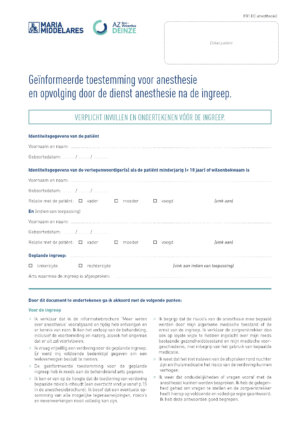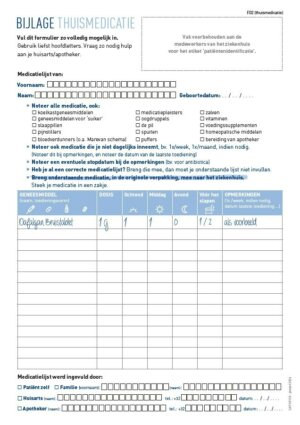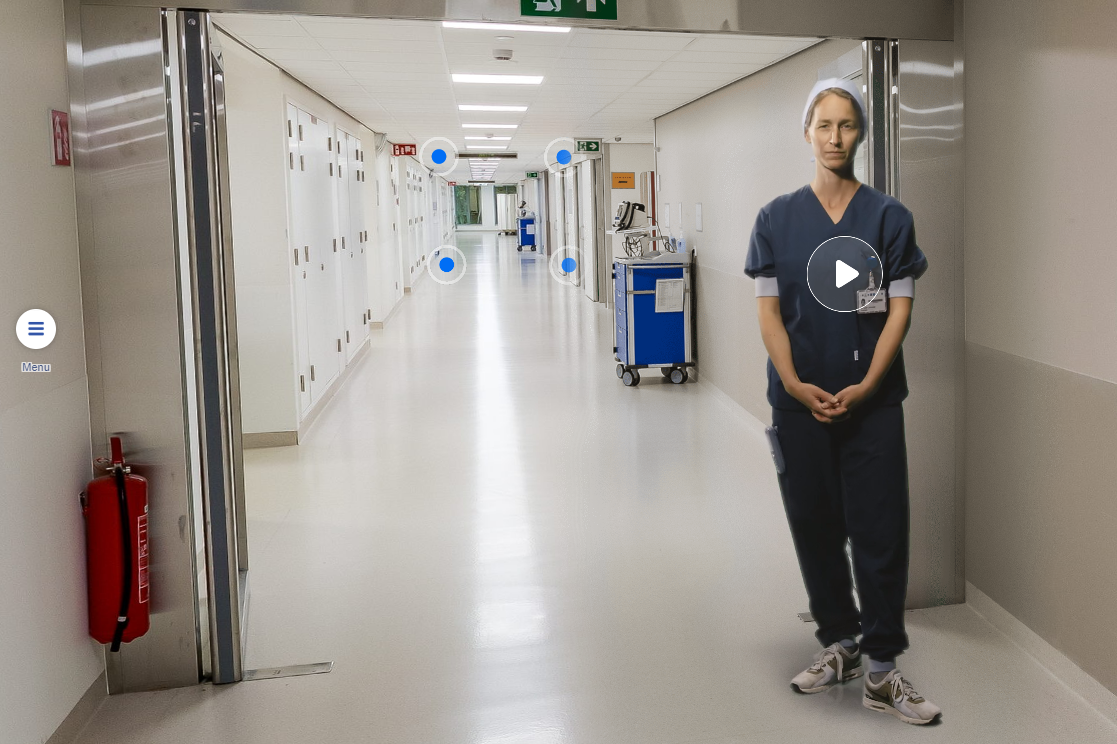Practical information
Below, you will find more information and a number of appointments for a smooth anaesthesia procedure.
Visit the Pre-admission Department
Visit the Pre-admission DepartmentWe ask you to visit the Pre-admission Department in the week before your operation at the latest. This ensures that the necessary tests can be carried out and the physicians will have the results available on time. Click here for more info on preparing for your admission.
Informed consent
Informed consentYour attending physician spoke to you about a surgical procedure or medical examination that requires appropriate anaesthesia. It is important to us that each patient provide his or her (voluntary) consent for the anaesthesia. This consent can, of course, only be given after a person has been completely informed. For this, you can always refer to the brochure 'Learn more about anaesthesia' and get additional expertise when you visit the pre-admission department.
On the day of the surgical procedure, you will always have the opportunity to speak in person with the anaesthesiologist who will be performing the anaesthesia. At that time, you may request more information about the type of anaesthesia and its follow-up.
You received an anaesthesia consent form declaring your agreement to the planned anaesthesia. In the case of minors (until and including 17 years of age), at least one parent or guardian has to complete and sign this document. If this document is not included in your medical chart, the anaesthesiologist can refuse to perform anaesthesia on you or your child.
You can also download the form below.
Only available in Dutch:

Geïnformeerde toestemming voor anesthesie
DownloadThings to remember
Things to remember- If you have a CPAP device , be sure to bring it to the hospital.
- Take off jewellery and piercings: these are not allowed in the operating theatre for hygiene and safety reasons.
- Remove your contacts and bring your glasses and glasses case.
- You can keep your hearing aid on for most procedures.
- Dentures must be removed before arrival at the operating theatre. Provide a recipient to store this in. Always report loose teeth to the nurse.
- It is best to stop smokingeight weeks before your procedure. In the last 24h before your procedure, you should not smoke at all. Smokers are more likely to contract respiratory tract infections and will cough more than non-smokers upon awakening from anaesthesia.
- Do not drive vehicles after your sedation: your insurance institution is unlikely to defend you in case of an accident or third-party damage. We advise you not to operate machinery and to postpone important decisions on the day of anaesthesia.
Useful documents
Useful documents- You have been given the anaesthesia brochure 'Knowing more about anaesthesia' by your attending physician. Read it thoroughly. If you have any questions, Please contact the Anaesthesia Department Secretariat.
- It is important that you fill in your medication form and bring it with you to the hospital. Bring your medication to the hospital in its original packaging.
If you want, you can also download these documents below.

Medication sheet
DownloadVirtual visit operating theatre
Virtual visit operating theatrePatients often have a lot of questions when they undergo surgery. To prepare yourself, you can already take a look at the preparation room, operating theatres and recovery room of the operating theatre on the Maria Middelares General Hospital site. There are also images of the single and double rooms. You can get more information through pop-up windows and from a number of nurses and physicians.

A virtual visit to the operating theatre at St Vincent General Hospital in Deinze is not possible.


